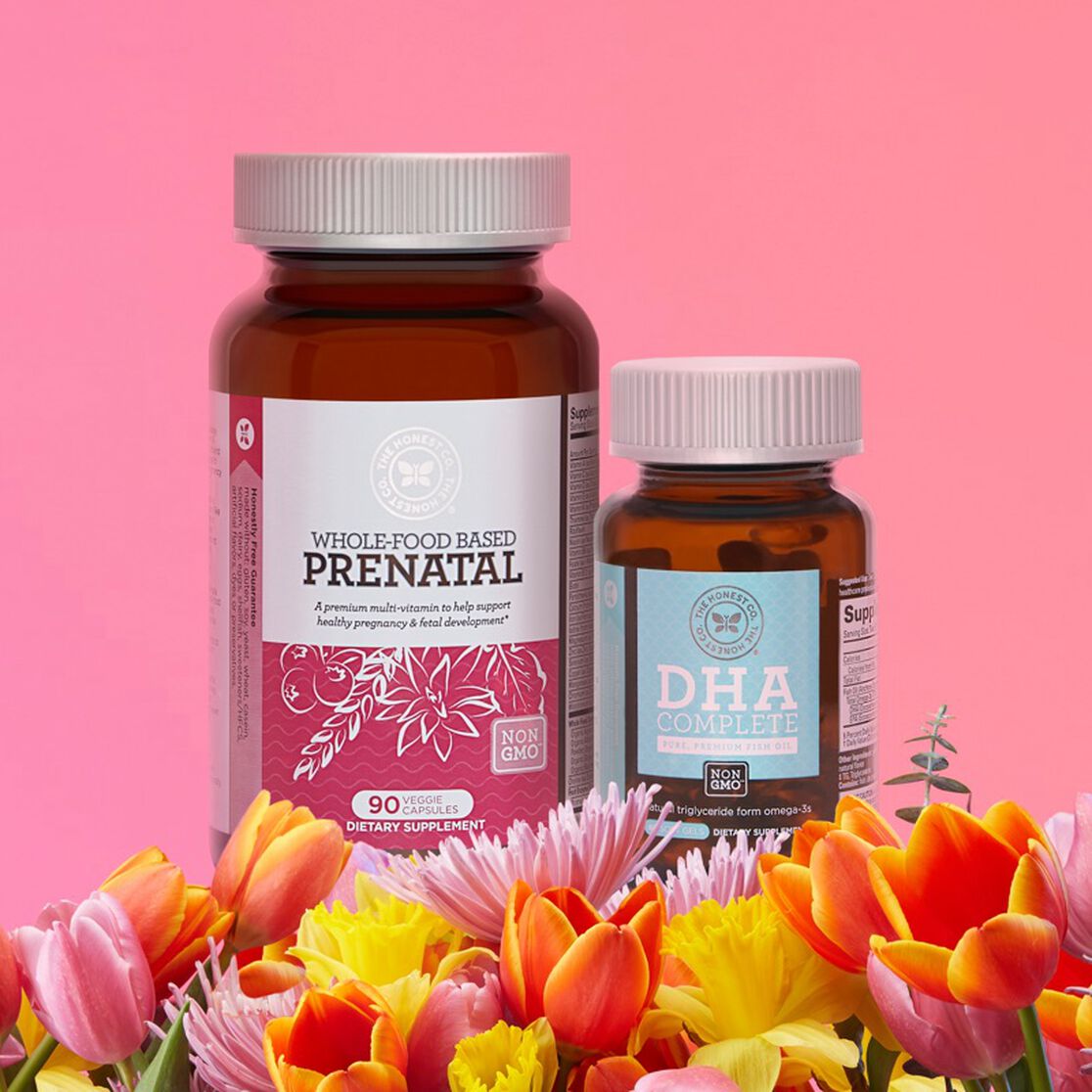DHA, short for Docosahexaenoic acid, is considered an “essential fatty acid” because we must get it from diet alone – our bodies do not produce it. However, the typical American diet is not sufficient in DHA, which is made even worse during pregnancy when baby uses DHA for the development of the nervous system. The American College of Obstetricians and Gynecologists (ACOG) recommends pregnant and nursing women get DHA from food by consuming two servings of low-mercury fish or shellfish each week. This can be difficult to do if you have morning sickness or other typical pregnancy food aversions, so many doctors recommend a DHA supplement (or a prenatal multivitamin that includes DHA) to help meet these needs.
Here are five reasons to consider adding a DHA supplement to your prenatal routine:
- Prenatal support. DHA helps support fetal brain and eye development.* Pair a DHA supplement with your prenatal multivitamin supplement as part of a more comprehensive prenatal routine to help support your growing baby.
- Brain and eye health. DHA is also beneficial for mom! DHA provides numerous health benefits, including helping support healthy brain and eye function in adults.*
- Gentle on taste buds. Depending on morning sickness and other pregnancy-related food aversions, a DHA supplement may be easier to stomach that adding fish to your diet. (Our easy to swallow soft gels are even strawberry flavored for reduced fishy burps!)
- Convenience. Because DHA is especially important during pregnancy, consistency is key. A DHA supplement can be more convenient than getting DHA from diet alone, so you can ensure you're getting the recommended amount.
- Peace of mind. Many DHA supplements are third party tested for purity, potency and freshness. Look for the International Fish Oil Standard (IFOS) seal of certification for some additional peace of mind.
We always suggest that you discuss the supplements that you take, especially during pregnancy, with your healthcare provider, as they know you and your health history best and can provide valuable guidance.

We aim to provide you with the most honest and credible information possible. This article was reviewed for accuracy by The Honest Team and was written based on sources that are linked at the bottom of the article.
blog_review_statement



